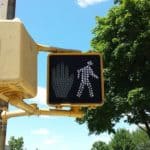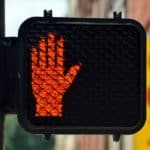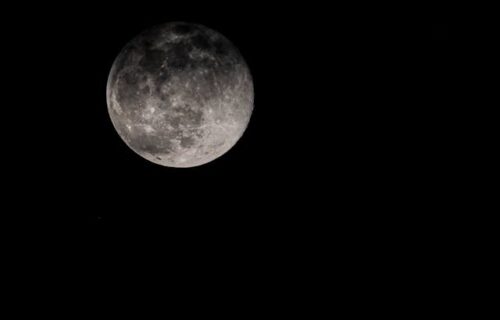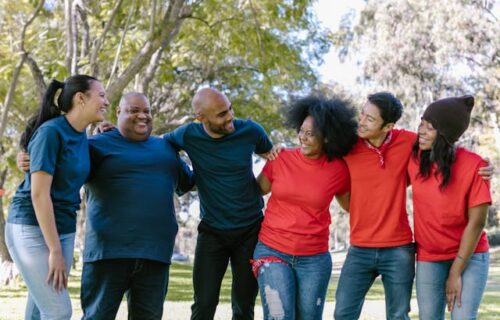
Driving Duke Ellington
Every intersection in the road of life is an opportunity to make a decision.
~ Duke Ellington
From driving to Ohio to driving in Southern California to driving to Vermont, a lot of hours have been logged in a car this month!
We’ve gone from tiny two-lane back roads, beautiful for the surprise vistas that open up when you take a turn or top a hill, to huge superhighways, the only beauty of which, for me, lies in the intricate webs of their intersections.
For some reason, when I see these constructions, I wish I were a photographer who could capture their elegance, and I silently wonder whether there’s a specialty in civil engineering for them…just as there must be for parking garage design.

From where we live in Michigan, it’s a 12+ hour trek to the state where I grew up—and according to unwritten state rules, I can’t claim to be a Vermonter unless I was born here, so moving here when I was two doesn’t count, and yes, I’m bitter—and I normally wouldn’t make the trip mid-week mid-school year, but we’re in the throes of making the final college decision (deadline May 1st!) and I’m not sure whom to medicate….
Yesterday morning, as we left in the dark, pouring rain, I caught an episode of NPR’s TED Radio Hour entitled How It All Began.
I was struck by the statement that due to our super-developed brains, human beings are the only creatures on the planet who are presented with a daily choice whether to act in a fashion that will preserve our species’ (and others’! and the planet’s!) existence or lead to self-destruction.
I think that as individuals, we are likewise faced on an hourly or even minute-ly basis whether to nourish our health or ruin it.
In my work, I often hear clients hone in on this idea:
 “I know that I can choose to eat well or to eat junk…but why do I have such a hard time making the ‘right’ choice?”
“I know that I can choose to eat well or to eat junk…but why do I have such a hard time making the ‘right’ choice?”- “Every morning, I have to decide, should I work out, or should I sleep in?”
- “I have such a hard time letting someone else take care of something—I feel like I have to do it all myself for it to be done right.”
- “I just want someone to tell me whether I should stop or go, do this or do that….”
 Each one of these questions is like an intersection, and at times it can feel like an elegant highway interchange we handle without a hitch. At other times, it may feel more like a stoplight where we dither before proceeding, perhaps in the wrong direction. (Whatever did we do before GPS Girl announced that she’s “recalculating?”)
Each one of these questions is like an intersection, and at times it can feel like an elegant highway interchange we handle without a hitch. At other times, it may feel more like a stoplight where we dither before proceeding, perhaps in the wrong direction. (Whatever did we do before GPS Girl announced that she’s “recalculating?”)
On one stretch of highway in Ohio, we were mildly amused—and more than a little terrified—to see that there were minor roads that intersected with our four lanes of traffic moving at 65 mph.
How does it feel to sit on that smaller road watching all four lanes zooming by, knowing that at some point, you have to commit to a course of action and take it boldly? How much does the traffic flow have to increase before the engineers come back with the plan to make it a freeway with exit and on-ramps?
I imagine it probably feels like what we go through all the time: being faced with so many decisions can be stressful—so much so that there are names for it: analysis paralysis, decision fatigue.
At times our minds can feel like multilane superhighway traffic: so much to do, so many decisions to make…and so much conflicting information on which to make the choice!
How can we slow down the noise and traffic long enough to make “good” decisions, to choose nourishment more than destruction most of the time?
I like to compare overwhelm to overweight: if you think about being 30 pounds overweight, you surely recognize that you didn’t suddenly wake up that way. And you really can’t lose it overnight, either: in fact, more and more research indicates that the faster you lose it, the faster it’ll come back.)
Similarly, our lives didn’t get so overwhelming overnight—we gradually let the roadways in our minds get to the point where we need to either upgrade the infrastructure or find a way to reduce the traffic.
Since the former is not really a choice yet (interestingly, the NPR piece actually talked about this possibility!), let’s focus on the latter, which is actually possible and can be done without adding hours of workouts or meditations, wacky diets and intense cleanses, medications and silver bullets.
It takes a little mindfulness, a little awareness of what we choose when we make decisions on the fly. If you want to try it out, spend a week noticing which appointments you cancel on your calendar and which you keep, and then spend some time thinking, writing, or talking about any similarities and differences you find. The last step is to come up with a way to hit the brake the next time you’re faced with the need to cancel an appointment and make it a conscious choice, not a knee-jerk reaction.
Sorry, I’m not going to give you the answer—we are all different, and you need to find the answer for yourself—but I guarantee you, the exercise will be eye-opening.
I’ll be holding a webinar in May for you to learn more about how to reduce the noise in your mind and the traffic in your schedule, and if you feel like the only thing down the road right now is a high speed head-on collision, schedule a free “Let’s talk about S.A.N.I.T.Y.” consultation on my bookings page.
In the meantime, traveling mercies!
(Oh. And besides giving us a great quote about opportunities and decisions, Duke Ellington makes a great addition to a roadtrip playlist….)



